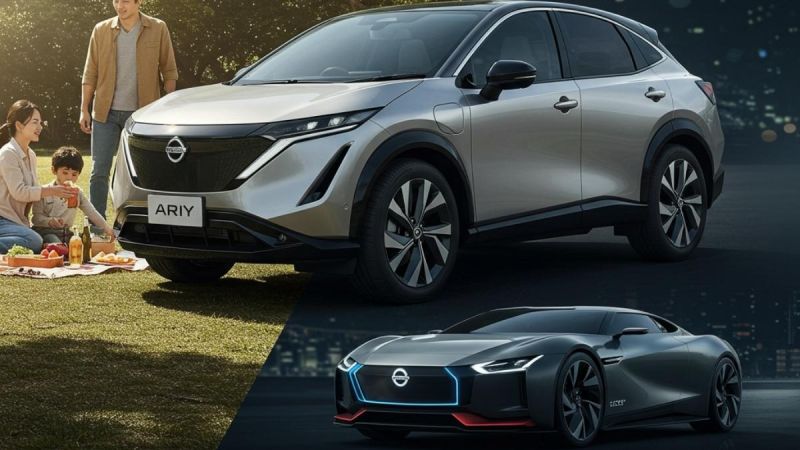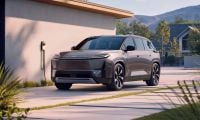The winds of change are blowing fiercely through the automotive landscape, and even established players like Nissan must make tough decisions to navigate the evolving market. Recent reports suggest that Nissan is opting to cancel its planned electric successor to the Maxima sedan and similar EV models under its Infiniti luxury brand to focus its electric vehicle development and production on the more lucrative and in-demand SUV segment. While the news might disappoint fans of electric sedans, this strategic pivot appears to be a sensible and necessary move for the Japanese automaker.
The Reign of the Electric SUV
The current market dynamics overwhelmingly favor sport utility vehicles, and this trend is amplified in the burgeoning electric vehicle sector. Consumers have demonstrated a clear preference for SUVs' higher ride height, increased cargo capacity, and perceived versatility. This preference translates directly into sales figures, with electric SUVs consistently outselling their sedan counterparts across various markets. For Nissan to allocate its limited resources and development efforts towards a segment with proven high demand makes good business sense.
Sedan Appeal: A Diminishing Spark
Conversely, the enthusiasm for electric sedans, while present, hasn't reached the same fever pitch. While stylish and often more aerodynamically efficient, EV sedans face an uphill battle against the ingrained popularity of SUVs. Nissan likely recognized that investing heavily in developing and marketing electric Maxima and similar Infiniti sedans would yield comparatively lower returns than focusing on electric SUVs. In this segment, they already have a presence with the Ariya.
The Looming Chinese EV Challenge
Beyond internal strategic decisions, Nissan faces a significant external challenge: the rapidly advancing and cost-competitive Chinese electric vehicle market, spearheaded by giants like BYD. These Chinese automakers possess a considerable advantage in battery technology, supply chain control, and manufacturing costs, allowing them to offer compelling EVs at price points that established Western and Japanese manufacturers are struggling to match. Nissan desperately needs to close this massive cost and technology gap to remain competitive globally. Focusing its EV efforts on the most popular segment allows for a more concentrated approach to tackling these challenges.
Revitalizing the Brand: Lessons from the Past
Nissan is at a critical juncture where brand revitalization is paramount. The company needs to recapture the excitement and desirability that once defined it. Looking back at Nissan's history, one model stands out as a tremendous success and a symbol of the brand's potential: the 240Z (Nissan 240Z History). This affordable, stylish, and performance-oriented sports car captivated a generation, injecting a significant dose of cool into the Nissan brand.
The Potential of a Performance EV Sports Car
Drawing inspiration from the 240Z's success, Nissan might consider building a compelling performance EV sports car as another avenue for brand revitalization. If Nissan could create an electric sports car that looked stunning and delivered exhilarating performance, it could generate significant buzz and attract a new generation of enthusiasts to the brand. This halo effect could trickle down to their more mainstream EV offerings, including their strategically prioritized SUVs.
A Focused Future
Ultimately, Nissan's decision to prioritize electric SUVs while seemingly shelving its Maxima EV and similar Infiniti sedan plans is a pragmatic response to current market realities and the formidable challenge Chinese EV makers pose. By concentrating on the most popular segment, Nissan can optimize its resource allocation and focus on closing the cost and technology gap. While a performance EV sports car could offer a vital injection of brand excitement, the immediate future for Nissan in the electric era appears to be firmly rooted in the high-riding, versatile form factor of the SUV. Though potentially disappointing for some, this strategic pivot may be the most sensible path for Nissan to revitalize its brand and secure a competitive position in the electric future.
Disclosure: Picture rendered with Gemini AI
Rob Enderle is a technology analyst at Torque News who covers automotive technology and battery developments. You can learn more about Rob on Wikipedia and follow his articles on Forbes, X, and LinkedIn.
Set as google preferred source











